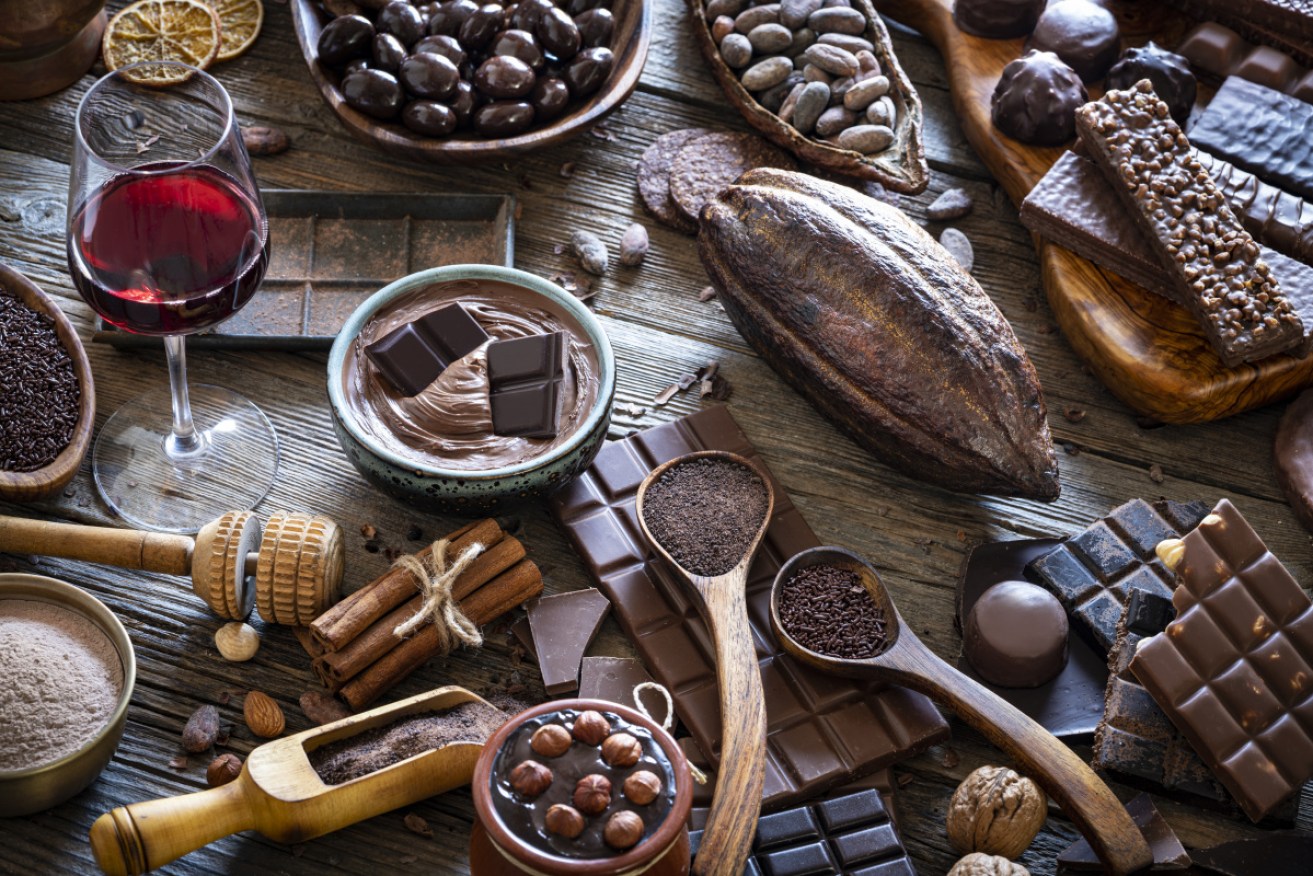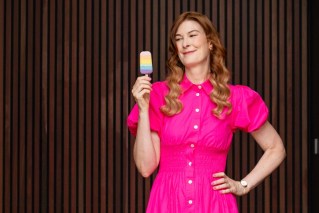More evidence that foods rich in flavonoids lower risk of dementia


Dark chocolate and red wine are two foods linked with a lower risk of dementia. Photo: Getty
Do berries, apples, tea and dark chocolate really protect against dementia and cognitive decline?
Three new studies show an intriguing association between foods rich in flavonoids and lowered risk of brain disease, adding to a body of evidence that goes back at least two decades.
Flavonoids are a class of plant compounds that are found in most fruit and vegetables – and in dark chocolate and red wine – and scientists are investigating if they explain, at least in part, why a plant-based diet is so beneficial to our health.
Different flavonoids appear to protect different parts of the body from disease. Some lower cholesterol, others serve as an antihistamine.
A 2019 Australian study found the flavonoids found in apples, tea blueberries and broccoli offered some protection against cancer and heart disease, especially for heavy drinkers and smokers.
Flavonoids in dark chocolate appear to lessen the severity of fatty liver disease.
How do they help?
Flavonoids act positively on different parts of the body in different ways, but most notably have antioxidant and anti-inflammatory properties, which are thought to protect our brain cells.
Oxidative stress is considered a likely candidate for causing age-related cognitive decline and dementia, where a person’s memory, thinking, reasoning and problem-solving abilities are eroded.
An epidemiological study from Tufts University that followed 2800 people for 20 years found those participants with a low intake of three flavonoid types were linked to higher risk of dementia, when compared to those with a flavonoid-rich diet.
- Low intake of flavonols (apples, pears and tea) was associated with twice the risk of developing Alzheimer’s disease and related dementias (ADRD)
- Low intake of anthocyanins (blueberries, strawberries, and red wine) was associated with a four-fold risk of developing ADRD
- Low intake of flavonoid polymers (apples, pears and tea) was associated with twice the risk of developing ADRD.
These findings are supported by a separate study, from Rush University, which found a class of flavonoid called flavonols – found in onions, leeks, brussels sprouts, kale and broccoli – were associated with lower risk of dementia when eaten in higher amounts.
The mystery of Subjective Cognitive Decline
A paper published this week revealed types of flavonoids found in strawberries, oranges, grapefruits, citrus juices, apples and pears, celery, peppers and bananas were “significantly associated with lower odds” of developing Subjective Cognitive Decline (SCD).
This is an interesting one.
Subjective Cognitive Decline was first recognised as a condition in 2014. An article in The Lancet explains: “A growing awareness about brain health and Alzheimer’s disease in the general population is leading to an increasing number of cognitively unimpaired individuals, who are concerned that they have reduced cognitive function, to approach the medical system for help.”
In other words, these are people who – when given standard tests – don’t appear to be suffering early cognitive decline, but are perhaps overly worried that memory lapses or losing their way in telling a story is evidence of dementia.
The paradox here is that epidemiological data provide evidence that the risk for mild cognitive impairment and dementia “is increased in individuals with SCD”.
However, the majority of individuals with SCD will not show progressive cognitive decline.
Perhaps the immediate risk of SCD is depression and anxiety – both of which reduce quality of life.
So it’s somewhat intriguing, and encouraging, that a diet high in flavonoids appears to prevent the onset of SCD.
What has to be kept in mind: While these studies have found a strong association between these foods and lower risk for dementia, it can’t be said that one thing causes the other.
But it all adds up to a good excuse to consume more strawberries, dark chocolate and red wine.








